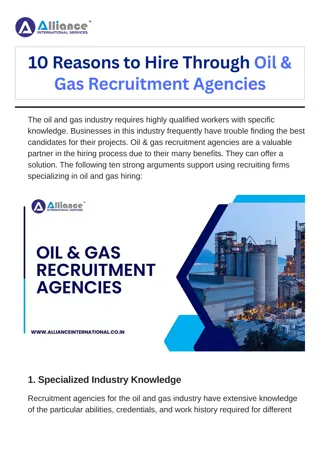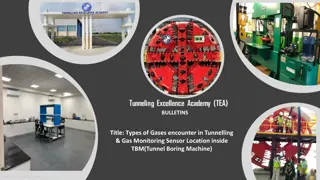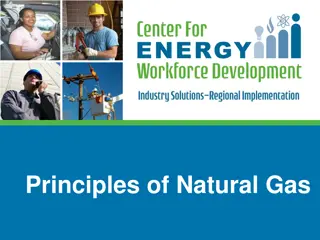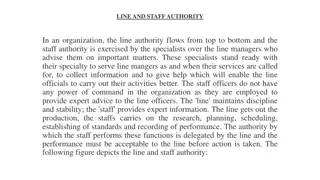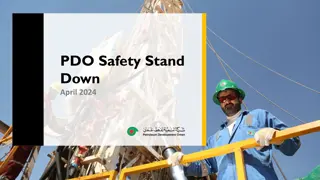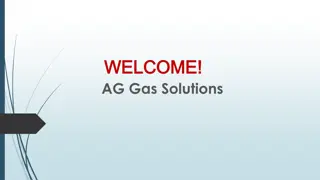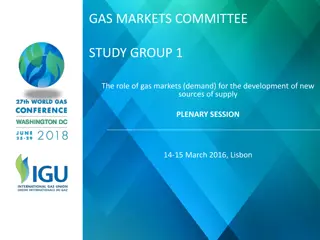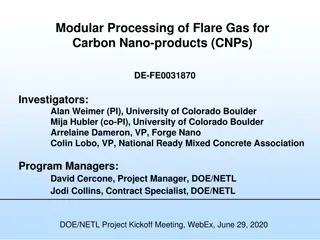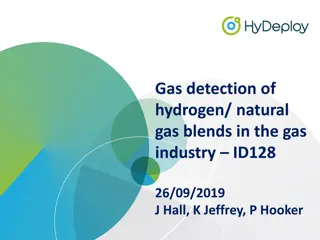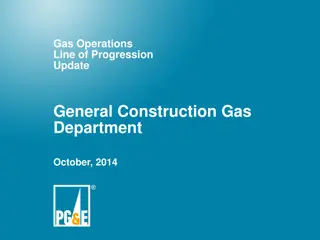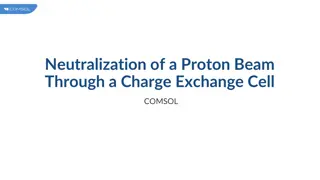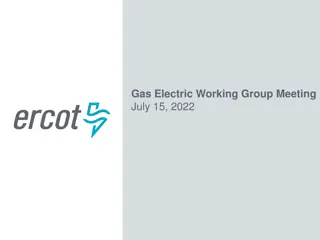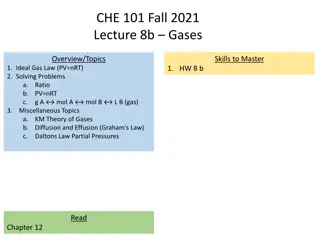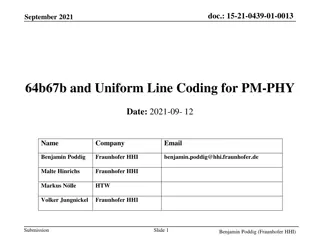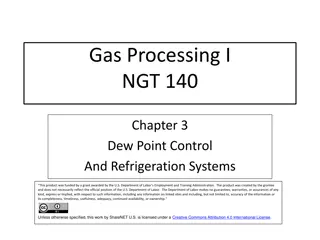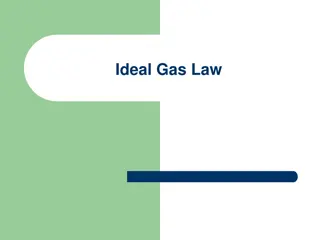Understanding Reasons for Not Calling Before Digging: Gas Line Safety Research Report
A research study conducted by Vectren Corporation in collaboration with Wyse aimed to understand why excavators and homeowners fail to call 811 before digging, leading to damages to gas lines. The study explored various aspects such as reasons for not calling, previous experiences with 811, barriers to calling, and suggestions for promoting safe digging practices. The findings will help improve damage prevention processes and enhance communication on gas line safety.
Download Presentation

Please find below an Image/Link to download the presentation.
The content on the website is provided AS IS for your information and personal use only. It may not be sold, licensed, or shared on other websites without obtaining consent from the author. Download presentation by click this link. If you encounter any issues during the download, it is possible that the publisher has removed the file from their server.
E N D
Presentation Transcript
Vectren Corporation Gas Line Safety Research February 1, 2017
Table of Contents Background and Methodology Executive Summary Detailed Report Disposition of Excavators Interviewed How Gas Line Was Damaged Reasons Driving Decision Not to call Who Is Contacted after Gas Line Event Call Before You Dig Law Perceptions of 811 Appendix Verbatim Comments Reasons for Not Calling This Time Barriers Others May Have to Contacting Locating Service Satisfaction with 811 Preference for Contacting 811 3 9 21 24 28 30 35 38 40 48 49 58 65 69
Background and Objectives Homeowners and excavators who do not call 811 before they dig are responsible for 33% of all the damages to Vectren s gas lines. Vectren contracted with Wyse to conduct research via telephone interviews to identify reasons why people do not call before they dig. The main objective of this research is to understand why excavators and homeowners fail to call 811. Specific areas Wyse explored include: Understanding the situation surrounding the gas line damage (type of project undertaken) Understanding the primary reasons that drove the decision to not call Determining if they have ever previously called 811, and if so, what made this instance different Uncovering rationale for calling or not calling based on circumstance Uncovering any barriers/concerns they might have regarding calling Identifying any missing information they feel would be important to know about Indiana 811 to encourage others to call, including suggestions or recommendations for promoting safe digging and preventing damage Vectren will use the research findings to help improve processes around damage prevention and find better ways to communicate about digging and gas line safety. 4
Methodology Vectren provided Wyse with a list of excavators and homeowners who caused damage to a gas line in Indiana during 2016. This list included names, telephone numbers and some e-mails for approximately 150 excavators/tradesmen and 80 homeowners/tenants. The excavator sample was comprised of businesses who work in the construction field (builder concrete, sewer, etc.) and landscapers who worked on commercial and residential projects. Wyse sent out initial invitations to the full list of homeowners and excavators via a combination of e-mails and standard postal letters. Wyse interviewers followed-up after the invitations were sent. The invitations introduced the goal of the research and briefly explained the process with instructions on how to participate. Respondents were provided with an incentive of $50 for excavators, and $25 for homeowners. Wyse was often able to complete the interviews spontaneously when a respondent answered. When there was no answer, Wyse left detailed messages explaining the intent of the research and requested their participation. Wyse followed-up and made appointments with those individuals who wanted to participate at a later date and time. Wyse conducted telephone interviews with 17 excavators and 14 homeowners, for a total of 31 interviews. The response rate, based on the number of interviews Wyse completed, was approximately 13%. On average, the interviews lasted between 20 and 30 minutes. Participants were very generous with their time and willing to participate in this study. 5
Goal of Qualitative Research Develop insight and direction, rather than definition or precise measurement. Look for consistencies across interviews Numbers provided are for directional purposes only Not statistically significant Respondents comments represent their ideas but may not be verbatim. Please note: Findings represent excavators and homeowners perceptions which might not be factually correct. 6
Excavator Interviews were Drawn from the Following Cities: 7
Homeowner Interviews were Drawn from the Following Cities: 8
Executive Summary Awareness of the Call Before You Dig Law and 811 Attitudes toward 811 Barriers to calling and recommendation to overcome them Other suggested improvements 9
Awareness of the Call Before You Dig Law and 811 The majority of excavators were highly aware of Call Before You Dig and Indiana 811. All the excavators with the exception of one individual had requested locates previously. The failure of excavators to complete a locate is not due to lack of awareness. Only one landscaper, who was a young man (age 22), was unaware of 811. He was new to contracting and lacked experience and knowledge of the law. Awareness of the law and knowledge of 811 was a major obstacle for homeowners. Homeowners were more likely to be aware if, at some point in their career, they worked in the construction trade or for the government. Many of the remaining homeowners were only vaguely aware of the law. Many homeowners were vaguely familiar with 811. Many had heard Call Before You Dig before and didn t realize it applied to homeowners. Their perception was that 811 only applies to excavators and contractors. About half of the homeowners had never called 811 before. A couple of others stated they relied on contractors who were performing work for them to do the locates. 10
Attitudes toward Indiana 811 Participants were generally satisfied with 811 and preferred to call in locates rather than use the online system for web ticket entry. Those who rated 811 highly did so because they believe calling 811 is a straightforward process, locates are mostly accurate and the timeframe of 48 hours to complete the locate is reasonable. Neutral to negative attitudes toward 811 were primarily due to too long of hold times when calling and the information required seemed complicated and hard to locate. Excavators were more familiar with the online system than homeowners, but even they preferred to call 811 because the online system was perceived as not as user-friendly. The online process was described as cumbersome and confusing. Some said there are too many fields to fill out and the information and process is not intuitive. However, with improvements several individuals indicated they would be more likely to use online 811. Speaking to a live person who understands how to gather the information and guide them through the process was a major reason why phone was preferred over online. 11
Barriers Top 5 Higher Frequency Excavators Home Owners 1. In a hurry urgent to complete job or emergency 1. Lack of awareness unaware of law or Indiana 811 2. Perception they are not really excavating 2. Ignorance or lapse in judgement 3. Perception they are not really excavating 3. Assume they know locations of utilities 4. Assume they know locations of utilities 4. Miscommunications 5. Ignorance or lapse in judgement 5. Miscommunications Lower Frequency Note: Barriers are listed by order of frequency heard during the interviews. The following slides provide a more in-depth explanation of these barriers, including key takeaways and recommendations. 12
Barrier: Perception I Dont Have Time to Wait for the 811 Locate KEY TAKEAWAY: Make It Easier for Those In A Hurry to Get Fast Locates A primary complaint of contacting 811 was the commonly long wait times due to high call volumes. In addition to the hold times, excavators did not want to delay a job by waiting 48 hours for the locate to be completed because they felt lost time is lost money. Some excavators, therefore, moved forward with digging projects without requesting a locate because they did not want to wait. This is a major barrier for excavators, especially smaller companies that have fewer jobs. A few who wanted to get to work quickly said they were willing to pay a small fee for an expedited locate. E RECCOMENDATIONS: Determine if there are ways to better manage call volumes to reduce hold times and to accelerate the locate process. Opportunities may include: Direct calls through a system based on segmentation (e.g., homeowner vs. excavator, size of project, or an ID for frequent callers that helps them expedite the process) Provide a direct contact that can serve as a dedicated locator to handle requests (this person could also ensure unanswered questions are addressed before the worker breaks ground on the project) Consider providing same-day or same-hour rapid, but non-emergency locates at a price (one person suggested a $25-$50 surcharge seemed reasonable) Communicate what actually constitutes an emergency (loss of service) Emphasize the financial risks associated with not calling for a locate. Communicate that it is truly not worth rushing a job because too much is at stake if a gas line is damaged. Messaging should address hidden or unexpected costs that could hurt the pocketbook if a gas line is damaged, including the repair bill, fines, penalties, lost time and hassle. Lost future business because of damaged reputation Emphasize the potential domino effect of being responsible for evacuating a job site and surrounding areas H E = Excavators H = Homeowners 13
Barrier: Perception I Wasnt Digging KEY TAKEAWAY: Clearly Define What It Means to Excavate and that Homeowners Are Also Required by Law to Locate Excavators were mostly aware they are required by law to locate before digging. However, many homeowners were unaware of the law, and the few homeowners who were aware had the perception that Call Before You Dig applies only to excavators or professionals doing major projects. They thought their small projects did not require them to get locates. Most homeowners said they would have requested the locate had they known before they damaged the gas line that their work was included in the law. Several excavators were also confused about the types of jobs that required them to get the locate and had a similar mindset to homeowners in that they did not need to call unless it was an obvious job. E+H RECOMMENDATIONS: Consider an outreach program to homeowners to educate them about the potential hazards in the ground and explain to them they need to call any time they will be doing work on their property. Articulate what types of jobs are included within the definition of excavating and consider broadening communications about safe digging to include skimming, milling, drilling or penetrating the ground with any tools, including stakes. E = Excavators H = Homeowners 14
Barrier: Perception I Already Know What is Below KEY TAKEAWAY: Clarify that Every Job Requires Locates They Expire and You Might Forget Where They Are Located Excavators and homeowners were quick to make assumptions about utility line placement on their job sites and properties. A major barrier to Call Before You Dig is the idea that homeowners and excavators believe they know where lines are buried. They believe they are familiar with the property or have had a locate done for a previous project and think they remember where the utilities are located. Excavators also admitted to looking for visual cues on the jobsite that indicate if a utility is present that might interfere with their work. Despite having damaged a gas line, there are some instances that respondents said they would still not request a locate in the future; examples of these included digging in an open field or remote area without clear signs of utilities, shallow digging or surface-layer skimming/milling. In these cases, they believe their assumptions seem justified and that it would be nonsensical for gas lines to be places in these locations without obvious markings or indicators. E + H RECOMMENDATIONS: Reinforce to excavators and homeowners not to make assumptions about the ground they are working on, especially if they had a previous locate in the same area or were familiar with the job site/property. Remind them the scope of the project might be different from a previous locate and utilities might be in a different area than where they remember them to be. Highlight elements of the law that focus on location expiration dates and explain that the locates need to be renewed for every project. E = Excavators H = Homeowners 15
Barrier: Perception I Expect Utilities to Be Buried Deeper KEY TAKEAWAY: Identify Opportunities to Prevent Future Damages by Correcting or Preventing Poor Placements Excavators and homeowners both were surprised to discover gas lines buried close to the surface. They assumed the lines would be buried deeper, at least 2 -3 underground. They generally understood it is difficult for Vectren to accurately identify the depth of the locates, but in many cases, excavators felt the grade of the land factored into the shallow placement of the lines. Also, there were instances where they felt gas lines were laid in a nonsensical manner; for example, gas lines embedded in concrete. RECOMMENDATIONS: Excavators and homeowners need communication messaging detailing that erosion and grading impacts gas line depth and to caution the lines are not as deep as one might expect. To prevent future damages, if Vectren is not already doing so, confirm the final grade of the land and work with the contractor on the site to install new lines in areas that will not interfere with future development. E+H Avoid running lines through existing structures; if the line is damaged for some reason, instead of replacing the line as it existed, consider relocating the line to avoid similar damages from occurring in the future. Consider a display at a home and garden show which targets both homeowners and smaller excavators. The display could counter the perception of deep gas lines and what constitutes digging. The messaging could also be reinforced in current advertising vehicles. Or, work with home improvement companies to ensure 811 messaging is added to their DIY classes or add signage around the hand digging tools aisle. E = Excavators H = Homeowners 16
Barrier: It Was Just a Miscommunication KEY TAKEAWAY: Identify Opportunities to Improve Communication Excavators and homeowners expressed feeling confused at times. The confusion occurs for a variety of reasons, including questions regarding scope of work, complicated markings, or even uncertainty about accuracy or completion of locations. They believe miscommunications can happen easily; therefore, more open lines of communication with the locate companies might help reduce risk and ensure it is safe to dig. RECOMMENDATIONS: Vectren or 811 could help promote better communication by creating increased lines of dialogue between the locators and the contractors on job sites. Recommendations include: Provide an arrival window to give excavators/homeowners the opportunity to meet with the locator at the job site/property Require a signature of acknowledgement to verify the locators have completed all the utility markings and that the excavator/homeowner understands them E H E = Excavators H = Homeowners 17
Barrier: Current Call Before You Dig Message Does Not Resonate KEY TAKEAWAY: Cite Benefits and Use Emotion to Create a Lasting Impact Currently Call Before You Dig is a highly functional message. Several excavators and homeowners recalled hearing it on the radio or television, but felt this message is easily lost in advertising clutter. Incorporating emotion into messaging can resonate and stand out from advertising clutter, creating a more significant and long-term impact. The messaging goal should be to create a lasting impression to help motivate individuals to think twice before digging without a locate. In addition, they felt the rationale for calling is missing and seems vague. The Call Before You Dig message should include a explanation as to why they should call or for what types of jobs. E+H RECOMMENDATIONS: When participants were asked what messaging would have a more dramatic impact on them or their peers, their answers included the following themes: RATIONAL MESSAGING It s the law It hurts the pocketbook (a five-minute call costs less than what damage to a utility can cost) It s more than just digging it s driving, drilling, skimming, milling, etc. It s free to call Don t assume you know (it s easy to forget; locate every time for every job because locates expire and you can be held responsible; there s no telling how deep lines can be) 811 is for everyone, not just excavators or people doing big jobs EMOTIONAL MESSAGING It s dangerous and can kill you or others I was lucky it was just $XXX and it didn t cost me my life It s embarrassing It hurts your reputation and may tarnish your credibility as an excavator Don t get lazy because then you ll feel dumb when something goes wrong Don t be an idiot and don t make my same honest mistake No one wants to damage a gas line it s an awful feeling E = Excavators H = Homeowners 18
Suggestion: Leverage Emotional Experiences to Change Behavior KEY TAKEAWAY: Create a Compelling Advocacy Campaign Using Testimonials Homeowners and excavators interviewed were generally satisfied with Vectren s repair service and information on safe digging practices. As a result of these encounters with Vectren s servicemen, most people said they would call 811 in the future before doing any outside work. They have learned that Call Before You Dig is a law that extends beyond the obvious excavating projects, and that it applies to both excavators and homeowners. It was clear homeowners and some excavators actively relayed their unfortunate experiences and the information they learned with their peer networks (friends, family, coworkers). Individuals reported they reached out to 20-30 people to share their experience and to warn them not to make the same mistakes they made. RECOMMENDATIONS: Since homeowners and excavators are already talking to others, Vectren should provide them with user-friendly tools to shape their message. Vectren should consider developing an advocacy program by working directly with these individuals to encourage them to become ambassadors for safe digging practices. This type of program should be effective because in today s social world, word-of-mouth is one of the most powerful influencers a company can leverage. Arm homeowners with information to pass along to their peers. Use their testimonials to communicate to others in a variety of ways: Develop a gas line safety ambassador program on Facebook Provide information to share on social media platforms Publish information on websites or in newsletters Distribute in mailers or utility billing inserts 19
Suggestion: Make 811 Online More User-Friendly to Increase Traffic KEY TAKEAWAY: Improve the Online Experience for Web Ticket Entry Frustration exists with the online submission process and excavators because homeowners find it to be clumsy and not as user-friendly as they would like. Complaints included that the process was cumbersome because it requires too many fields and asks for information that is difficult to locate. Currently, it appears the online system only allows for a singe ticket entry. For this reason, excavators find it easier to call 811 when submitting multiple requests where they can rely on someone to help them locate the information. Also, the web page is not optimized for mobile devices, making it difficult to use on the job site. Incorporating geolocation could also help pinpoint exactly what areas need locating and thereby reduce mis- or incomplete- locations. RECOMMENDATIONS: Suggestions to improve the user experience for the online web ticket entry include: Integrate with Google Maps for greater accuracy and help to eliminate miscommunications Allow users to upload additional documents/images, etc. or include attachments to their requests Integrate the tools for property identification with the submission form so fields can be pre-populated with the outputs Optimize for mobile web so busy excavators can access the online system with a smartphone while in the field Consider creating a mobile app that uses GPS to detect the accurate coordinates of the job site and reduce communication errors 20
Takeaways and Recommendations: At-A-Glance Key Findings Action Steps Are in a hurry to get jobs done (emergency, last minute) Feel the hold times for calling 811 are too long Are focused on cost-savings; time is money but are willing to pay a small fee for accelerated locates Identify opportunities to reduce hold times and expedite locate process (segment calls, provide a direct contact, rapid same-day or same-hour locate for a small surcharge) Reveal hidden costs of damaging lines Take pride in their work; care about the way they are perceived by others in the community Tell how accidents can damage credibility, hurt their reputation and cause lost business Excavators Feel mistakes are bound to happen, but believe miscommunications contribute to damages Desire open lines of communication with the locator to answer questions and confirm accurate scope of work Provide an arrival window to give opportunity to be on site at the same time and clear up confusion Require a signature of acknowledgement to verify locate has been completed and markings are understood Have trouble with the 811 online web ticket entry (clumsy, cumbersome, too many fields, complicated information, difficult to navigate or complete multiple entries at a time) and believe there are better ways to leverage existing technology to improve the process Integrate online 811 with Google Maps to improve accuracy Allow attachments or uploads with web ticket entry Integrate existing tools; populate outputs into fields Optimize for mobile web to enable remote access on site Consider creating a mobile app that uses GPS for locates Are satisfied with Vectren friendly and informative Actively share their experiences with their peers Create advocacy program for safe digging Publish testimonials and promote sharing Excavators & Homeowners Perceive small jobs as not really digging Define all types of excavating Assume they know where lines are (remember install or past locate, work on familiar job site, look for visual cues) Feel current message easily gets lost in advertising clutter Emphasize importance and benefits of locating; include strong emotional appeals Remind: locate for every job, every time Are surprised by shallow depths and haphazard placements of utility lines (e.g., embedded in concrete) Avoid running lines through existing structures; when damaged, consider relocating lines to prevent future damages Confirm final grade of land; work with contractors to avoid obstacles May be unaware of 811 law Heard of Call Before You Dig, but have weak associations May not know it is free to request a locate Simply do not think about calling before digging Believe the law only applies to excavators/professionals or people doing major obvious jobs Create outreach program to educate homeowners about hazards below the ground and how contacting 811 can prevent damage to utilities Inform property owners of specific types of utilities on their property they should be mindful of (gas main, service line, etc.) Explain the law applies to homeowners too; and it s free call Homeowners 22
Disposition of Excavators Interviewed Title and Number of Employees Type of Excavating Work Number of Jobs per Year Requiring Digging Types of Equipment Used 23
Excavators Title and Number of Employees Number of Respondents Number of Employees Number of Respondents Title Owner One 10 4 Minority Owner/VP 2-10 1 6 General Contractor/Partner 11-60 1 5 Business Manager 400 1 1 Project Manager 1,300-1,500 1 1 Safety Director Total 1 17 Safety, Health & Environmental Mgr. 1 Superintendent 1 Total 17 Most of the events occurred with smaller companies that did not have as formal of safety procedures in place. One person was typically responsible for calling in locates (usually the owner). Qst. Could you tell me a little bit about you and the company you work for? How many people work at your company? 24
Excavators Interviewed Were Involved in a Variety of Excavating Work Number of Respondents Type of Work Underground trenching utility work 2 Septic systems 2 Storm, sanitary, curb and demo (residential and commercial) 2 Residential construction 2 Commercial construction 1 Concrete contracting (residential and commercial) 1 Concrete, asphalt, sewer, water storm drainage (residential and light commercial) 1 Water, sewer main and services (commercial) 1 Highway construction 1 Real estate (commercial) 1 Plumbing (commercial and residential) 1 Post frame, digging holes 1 Fencing 1 Qst. What kind of excavating work does your company do? 25
Excavators Number of Jobs Per Year Requiring Digging Number of jobs requiring digging Number of Respondents 1-12 3 20-40 5 75-150 4 200 1 3,500+ 2 A ton/many jobs 2 Total 17 Qst. About how many outdoor jobs do you do per year that require digging? 26
Excavators Use Many Types of Equipment on Jobs Number of Mentions Number of Respondents Machinery Used Hand Equipment Excavators Shovels 7 12 Mini excavators Variety of hand digging tools Augers 6 7 Backhoe 6 1 Dozers 4 Post hole digger 1 Trackhoe/Track Excavators 3 Trenchers 2 Dump trucks 2 Hydrovac 2 Directional boring machine 1 High lift 1 Milling machine 1 Tractor 1 Qst. What kind of equipment do you use to dig/excavate? Tri axle 1 27
Damage to Gas Lines Are Caused by a Variety of Equipment Equipment Excavators Homeowners Total Shovel 5 4 9 Excavator (backhoe, bobcat) 1 3 4 Post hole digger 1 3 4 Driving in a stake 1 2 3 Pulled concrete out gas line embedded in concrete 3 0 3 Track of machinery (not digging, drove over line) 1 1 2 Trencher 2 0 2 Hand probe 1 0 1 Milling machine (gas line in asphalt) 1 0 1 Ditch digger 0 1 1 Cut line by mistake 1 0 1 Qst. Could you tell me a little bit more about this job? What happened when the gas line was hit? 29
Reasons Driving Decision Not to Call Primary Barrier to Call Before You Dig Confusion Regarding Definition of Excavating Unavoidable Damages and Extenuating Circumstances Participant Suggestions to Overcome Barriers 30
Primary Barriers to Call Before You Dig Excavators Homeowners In a Hurry Urgent to Complete Job or Emergency In a hurry to get job done, meet deadlines and complete job within a budget Last minute job that was out of scope Urgent job and did not want to wait for locate (unsure if constituted as emergency, but did not wait to locate) Anticipated bad weather or other obstacle and did not want work to be delayed (did not wait for locate) Not Really Excavating Removing/replacing/repairing existing structure Driving over soft/muddy surface; not moving the earth Working on surface layer; driving a stake Think They Know Where Lines Are Buried Familiar with job site; previously located property/site Analyzed visual cues; assumed there were no utilities Take someone else s word for it (trusted homeowner) Miscommunications Job site confusion (thought address had been marked) Incomplete or confusing markings (did not mark full scope of work; markings become unclear/disappear) Expect someone else to be responsible for calling 811 Ignorance or Lapse in Judgement Not thinking (complacent, lazy, negligent, forgetful) Inexperienced or young and underestimate job (cavalier attitude, feel invincible, did not know better) Not knowing the 811 Call Before You Dig law or it is free Lack of Awareness Have never heard of 811 Did not know it was a law to call 811 before digging Unaware it is free to call (perception of cost) Not Top-of-Mind (just not thinking about it) Does not occur to them that they should call Did not expect utilities to be just below the surface (or to be fragile enough that there could be damage) Perception They Are not really Excavating (small job) Did not seem like it warranted a locate because it was not an obvious or big job where they would be digging deep Removing, replacing or repairing an existing structure (fence, driveway, tree, etc.) Driving over soft/muddy surface; not moving the earth Working on surface layer; driving a stake Believe 811 only applies to work requiring professional excavators or contractors Think They Know Where Lines Are Buried Lines were previously marked or saw lines installed Previous homeowner indicated where lines were Location Confusion Locate records are not current on land lots and therefore, inaccurate locate (locate company missed marking) Hurried Project and Laziness In a hurry to get the work done; not planning ahead 31 Note: Responses are organized from top to bottom based on frequency of mentions throughout the interviews
Confusion Regarding Definitions of Excavating When Is a Locate Required? (What Does It Mean to Dig ?) Many excavators and homeowners had a vague understanding of what excavating means. They were quick to mention they weren t really digging when the damage occurred to the gas line. Examples include: Skimming the surface (e.g., pulling roots) Milling or peeling back a top layer of concrete (e.g., repairing a driveway or highway) Shallow digging (e.g., probing within a foot of the surface using hand tools or shovels) Gardening or landscaping (e.g., planting/or pulling out flowers, small trees, shrubs) Removing, replacing or repairing existing structures (e.g., existing fence post, septic tank) When Vectren arrived on the scene, they felt the service members were very informative and educated them on what it means to dig, and let them know they need to call before moving the earth for any application, regardless of scope of work. A few homeowners, and one excavator who was not aware of the law, further investigated 811 and Call Before You Dig by visiting the Indiana 811 website. As a result of this experience, most said they would call in the future if they ever needed to do any kind of digging. Participants from both groups (homeowners and excavators) suggested Vectren provide clearer definitions of what constitutes digging in their outward communications. Also, homeowners should be informed the law extends to all types of outside digging work, no matter the size of a project. 32
Unavoidable Damages and Extenuating Circumstances Damages Are Bound to Happen Excavators, especially at larger companies, admitted mistakes are just going to happen and there are many instances where damaging a gas line is unavoidable. Cases where damages seemed inevitable were often when an excavator or homeowner was removing, replacing or repairing an existing structure where a gas line was embedded into the material such as: Driveway concrete Highway asphalt Cement base for a fence post The foundation of a pylon sign In some cases, homeowners and excavators had their job sites marked and there were communication issues that resulted in un-marked areas, for example: The original outlined scope of work extended into an overgrown area that was missed by the locate company, however, there was no follow-up to confirm that it was indeed meant to be marked Inaccurate map of gas lines an original gas line from a previously demolished property was still live and not reflected on mapping records An excavator worked at a job site at a neighboring property that was previously located; he mistakenly believed the locate had already been called in since the job site seemed familiar At times damages happen that are truly accidents where digging does not even occur, for instance: An excavator was driving over the property outside of located area and the tires sank into the soft dirt, causing damage to a shallow gas line A homeowner was driving a bobcat on their property, not realizing the gas line was located at a shallow depth because of the grade on the property; The gas line was damaged when the tracks dug into the muddy surface Someone resting a shovel in the ground outside of the marked area 33
Participant Suggestions to Overcome Barriers Excavators Both Homeowners Create a mobile app to reduce job site miscommunications (use GPS to identify job site) Have a locator on site when workers are present to answer questions or provide their contact information for follow-up questions Require a certification/class to be an excavator Make the 811 online system more user-friendly Provide a physical marker or reminder of buried utilities (e.g., warning sign); some understanding of the depth of utilities would be helpful Use more durable materials to make gas lines more resistant to puncture (metal instead of plastic) or cover the lines with a protective layer (Kevlar) Make sure homeowners with mains are fully aware where they are and the dangers of hitting them; inform people what is on their property Potential Operational Improvements Important Messages to Communicate Calling helps you do your job and not calling could be putting your company and personal safety at risk (bankruptcy, injury) It hurts your reputation Changes in laws or regulations (e.g., do not plug the gas line) There may be a domino effect with hidden costs and damages (could hit a main and shut down a city, sending people home from work) It hurts the pocketbook (the 5 minute free call can save you from expensive bills or a fine) It is dangerous and can kill you Explicitly define what it means to dig (including examples) It is embarrassing do not be an idiot, do not be stupid Avoid the honest mistake give testimonials and statistics like costs, damages, residual effects It is the law It is free to call 811 Homeowners need to call too not just excavators working on large scale projects (including skimming the surface) Do not assume you know locate every time It s crazy not to call ; not calling is asking for problems I m lucky it only cost me money Ideal Vehicles for Messaging Communication Collect e-mails and acquire lists from trade companies and associations Make phone calls and send e-mails Place reminders at equipment rentals and on machinery (stickers) Text messages or Facebook for younger guys Insert or bulletin included in the utility bill; reminders for people using online billing Letters, post cards, e-mails Any and all places there is no bad idea to get the word out Radio, TV, highway signs (billboards) 34
Who Is Contacted after Gas Line Event Primary Contact Secondary Contacts 35
Vectren and 911 Are Typically First Contacted After an Event Excavators (N=17) Homeowners (N=14) First Call Vectren 11 7 (Emergency and nonemergency numbers) 911 4 5 The City 1 0 Someone else in neighborhood reported it must have smelled the gas 0 1 Don t Know sister called, I stayed at site 0 1 Didn t know who to call ultimately called Vectren 1 0 Excavators typically called Vectren when they hit a service line. Depending on the situation, they called either the emergency or non emergency numbers. If the break is more severe (larger line or commercial job site), the contractor called 911. Homeowners were a little less confident about who they should call. They tended to call either Vectren or 911. In a couple of cases, the individual asked someone they knew to call while they stayed at the site or were so overwhelmed by the experience they did not actually make the call. One individual actually called Vectren first, but there was no response so he ultimately called 911. Qst. What steps did you take after realizing a gas line was hit? Who did you/your company first contact? 36
Secondary Contacts When Gas Leak Occurred Excavators (N=6) Homeowners (N=3) Secondary Calls Vectren 3 1 U-Dig/811 2 0 911 1 1 OSCA 1 0 Called other contractors to avoid site 1 0 Neighbor who works for Vectren 0 1 Note: Excavators had multiple mentions About a third of the excavators made multiple calls to report the event. After calling 911, they reached out to Vectren and 811 to report the break. Once again, the more severe the break (and larger job site), the more likely excavators called multiple parties. Qst. Who else did you/your company contact? 37
Call Before You Dig Law Awareness of Indiana Law Awareness of Call Before You Dig 38 38
Awareness of Law and Call Before You Dig Number of Excavators (N=17) Number of Homeowners (N=14) Aware of Any Laws or Regulations for Safe Digging Yes 15 8 Never Heard of a Law 0 4 NowI Am Aware 1 2 Not a Law Just Get Penalized 1 0 Aware of Call Before You Dig Law Excavator Homeowner Yes 15 8 No 2 6 The majority of excavators were aware there was a law to call before digging. Homeowners were more likely to be aware if at some point in their career they worked in the construction trade or for the government. For many of the remaining homeowners, they were only vaguely aware of the law. Whereas the homeowners clearly needed more education on the law, the excavators for the most part were aware of the law and even several mentioned it with no prompting. Qst. Are you aware of any laws or regulations for safe digging? Have you ever heard of Call Before You Dig? 39
Perceptions of 811 Awareness Ever called 811 Reactions to Online 811 Familiarity and Preference with Contacting 811 Satisfaction with 811 Reasons for Rating Suggestions for Improvement 40 40
Awareness of 811 Excavators (N=17) Homeowners (N=14) Awareness of 811 Total Yes 16 7 23 Vaguely aware (name only, did not realize what it was) 0 4 4 No 1 2 3 No (just called utility company directly) 0 1 1 Excavators were highly aware of 811, or the need to call before they dig. The failure of excavators to call is not an awareness problem. Only one landscaper, who was a young man (age 22), was unaware of 811. He hit a gas line while setting a post for a deck. All the excavators, with the exception of one individual, had requested locates previously. Homeowners, however, were less aware of the need to call, and the number they should call. Although many stated they were aware of 811, it was apparent many were not strongly aware of or familiar with 811. Many had only heard the name before and didn t realize they should call before moving ground in their yard. About half of the homeowners had never called 811 before. A couple of others stated they relied on contractors who were performing work for them to do the locates. Qst. Have you ever heard of 811? 41
Ever Called 811 Excavators (N=17) Homeowners (N=14) Awareness of 811 Total Yes 16 6 22 Yes Called after event 1 0 1 Yes Called long time ago (10+ years) 0 1 1 No 0 7 7 All of the excavators have called 811. The one excavator who was not aware, now calls for every job (i.e., learned his lesson ). About half of the homeowners had called 811 at some point. They failed to call in this instance for various reasons (did not think they were actually digging, believed they knew where the line was located based on a previous locate, did not think about it, etc.). The other half has not called since the event because they have not had an outside project that required calling. Qst. Have you ever used the 811 system? 42
Online 811 is Functional, but Needs Improvement The majority of excavators were familiar with online 811 before the gas line event. However, they tended to prefer calling over using the online form because they could speak to a person. This was especially the case for older participants and homeowners. Since homeowners do not use 811 as frequently as do excavators, there is also the issue of trusting an individual more on the phone to place the locate rather than relying on a computer and technology. Several individuals tried to use 811 online but their experience was neutral to slightly negative. It is likely many excavators would use online 811 more if key improvements were made to the system. Several contractors complained the online system was very difficult and clumsy to use. For instance, it does not integrate with Google maps which would enable the excavator to give very detailed information about where the locates are needed. Additionally contractors would like to be able to upload site plans/documents which detail the area they want located. Being able to upload information would be very helpful, especially for new construction and in rural areas because of the difficulty of locating the site s coordinates online. Several individuals mentioned they tried using the online form, only to abandon it when they ran into problems. Several excavators mentioned they call in locates while on the job, therefore, they would not want to access the online form because it is not optimized for mobile usage. One individual went on to suggest 811 develop an app that people could download and use on the job site. The app could integrate geolocation features which would make it easier to relay the location. One individual also mentioned he tended to call in when he had multiple locates because the online form only accepts single locates. Having the flexibility of both calling in and using the online form was seen as beneficial. Note: One hypothesis going into the study was to understand whether contractors or excavators felt failed by the system. However, no one expressed an overly negative reaction to using online 811 that made them adverse to using the system. Although respondents suggested some improvements, currently, the 811 system itself is not a barrier to use. Qst. What are your reactions to online 811? 43
Familiarity and Preference with Contacting Online 811 Excavators (N=16) Homeowners (N=14) Familiarity with Online 811 Total Yes 12 3 15 Yes aware after event (Told by Vectren or went online to investigate) 1 9 10 No 3 2 5 Excavators (N=16) Homeowners (N=14) Preference Call or Online Total Call 11 11 22 Online 1 1 2 Both 4 2 6 The excavators were more likely to be familiar with online 811 than homeowners. However both excavators and homeowners preferred calling 811 because calling is easier to do and one can speak to a live person who will help them locate critical information. Qst. Are you aware you can go online to use the 811 system for Call Before you Dig? What would be your preferred way to contact someone for a line locate via the phone or the Internet? 44
Satisfaction with 811 Number of Excavators (N=17) Number of Homeowners (N=10*) Rating Highly Satisfied (5) 4 3 4 8 1 3 0 1 2 1 1 Not at all Satisfied (1) 1 0 Average 3.93 4.00 Depends on who you talk to that day 1 0 Call 4, Online 2 1 0 Call 4, Online 5 1 0 Don t Know 0 4 * Not all homeowners used 811 Qst. What is your overall satisfaction with contacting 811? Please use a one to five scale where 1 is not at all satisfied and five, is highly satisfied. 45
Reasons for Satisfaction Rating with 811 Excavators Homeowners The System Gets the Job Done (ratings of 5 and 4) Straightforward process Locates are mostly accurate Locates are done within acceptable time frame (1-2 business days) Wait Time Too Long (ratings of 2 or 4) On hold too long Locates should be done faster Overworked Employees at USIC Locating Service (rating of 4) Inexperienced Not thorough Lack of Service from the Locating Company (rating 1) Too much record keeping needed, excavator responsible for knowing and contacting non member utilities in every city The System Gets the Job Done (ratings of 5) Locates are done within acceptable time frame Wait Time Too Long (rating 3) Too long on hold Too Much Information Required, not an Intuitive Form (ratings of 3, 2) Too many fields to answer Had to go to title documents to fill out form Lack of Communication (rating of 2) Needs clarity on what colors mean Qst. For what reason did you give this rating? 46
Suggestions for Improvement for 811 and Utilities Excavators Homeowners Shorten the Locate Time One utility holds up the entire job at the very last hour one comes to the job Willing to pay a fee for faster turnaround Utilities Should be Deeper and at a Standardized Distance from Each Other Many cases utilities are not laid below frost line (including gas) Difficult to determine how deep they are Better Communication Inform when all locates are completed Let excavator know when locates are being conducted so he can meet and ask questions about flags and clarify what areas should be marked Update Maps Google Maps would be easier to use if possible, integrate into the system Online System Could Be More User friendly Cumbersome form too much information required in fields Better Information Detail what each flag and color represents Qst. How could the system be improved? 47
Reasons for Not Calling this Time What happened what were the circumstances of this job that prevented a locate from being requested this time? 49 49
VERBATIM Why No Call? Not Really Digging Excavators Removing/Replacing/Repairing Existing Structure We were replacing a driveway. We really weren't digging. We were just peeling back 4-6 inches of concrete. There should have been no way to hit anything. The line wasn't exposed even when we hit it. One of my guys drove a stake in the ground and hit it. It was extremely shallow only 8 inches. Excavator We don t consider the roadway excavating. If we were taking out the road bed and everything it s a different story; we still will not call for these types of projects. There was nothing on the surface to indicate it. We hit them when they re embedded in concrete. Unless someone tells us, we re never going to expect it. It s supposed to be in the dirt. Excavator I want to say it is not our fault. I gave a work order to another company (subcontractor). I hadn t put in a locate on that. It was just a repair job. It was a 30-year-old fence. We pulled the gas line out with the fence post ball. He was already done. It was just a repair job. We weren t really digging. It was my negligence. I wasn't really digging just replacing something that was already existing. The fence was already there. Excavator They had been marked, but they lost the marks on the second one. While digging above grade there was an existing foundation for a big pylon sign an advertising sign you see on the highway. There was a foundation in that area we needed to remove. He started exposing that and pulling on it to get it out of the way. When Miller had installed that gas main, instead of going around that foundation or removing it, they jackhammered a hole in it and went through it. When we pulled it, we didn t think anyone with any kind of common sense would go through it. It s ridiculous! The guys forgot that there were two markings there. It didn t even dawn on them that there could ve been a second gas line or that it could ve been going through the foundation. It didn t require relocating as part of the project; it would have, had we thought about it going through the pylon foundation, but it didn t require it to start with because we were replacing the existing foundation. Excavator 50




